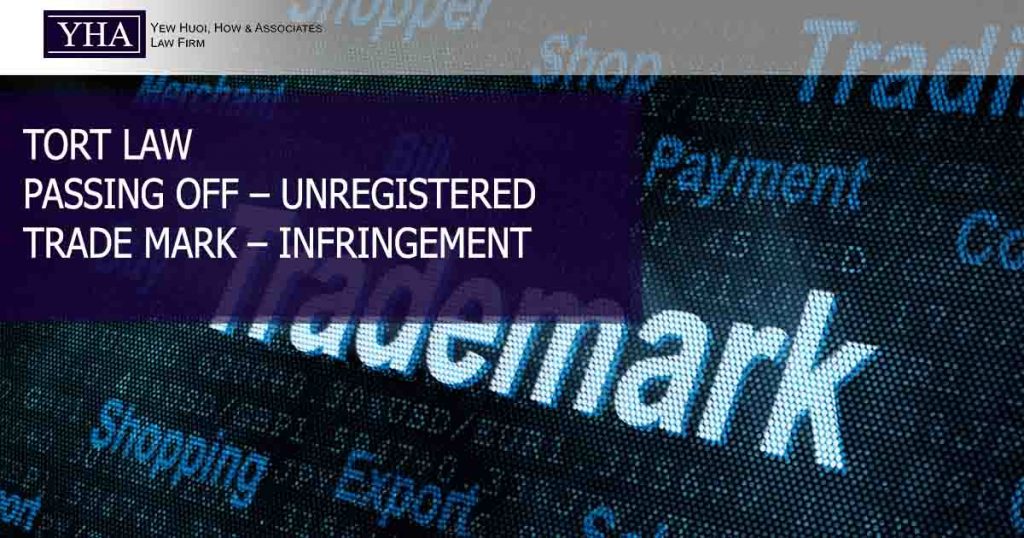I have been selling my brand named ‘Slimmy Slimmy’ on social media but I never do trade mark registration. One day, I received messages on social media asking me whether certain goods with the label ‘Slimmie Slimmie’ were mine. Upon conducting trade mark search, I discovered that the brand had been registered. What can I do?
- You can sue them under the common law tort of passing off.
- Under the law of Trademarks Act 2019 and the Trademarks Regulations 2019, legal actions against trade mark infringement is available only when a registered mark is infringed.
- The registered proprietor of the mark has the right to initiate court proceedings against any person who has infringed or is infringing its mark.
- HOWEVER, as for unregistered marks, the proprietor may sue the infringer for passing off its mark as that of the proprietor’s.
What should be proven by the proprietor?
- In order for a proprietor who did not register its mark to establish passing off, the proprietor must be able to prove that there was goodwill or reputation attached to the goods or services; misrepresentation; and damages.
- Furthermore, Malaysia practises the ‘First-to-Use’ principle, provided that these marks have attained goodwill and reputation in Malaysia.
What ‘First-to-Use’ principle is?
- First use means the use of a trade mark prior to anyone else regardless of the extent of such use.
- The ‘First-to-Use’ principle establishes that trade mark rights accrue to the first business to use the mark in association with the sale of goods or services on the market.
- This principle acknowledges the right of the first user of a mark.
- Other countries such as the United Kingdom recognises ‘First-to-File’ principle (the first person to register a brand obtains the rights).
Our Comments
- Tort of passing off is more difficult to prove and can be expensive.
- Thus, protection via registration would always be recommended in order to protect your intellectual property right.
- Registration is the way to go but the Malaysian trade mark system does take into account of common law rights that accrue from use of an unregistered mark.

